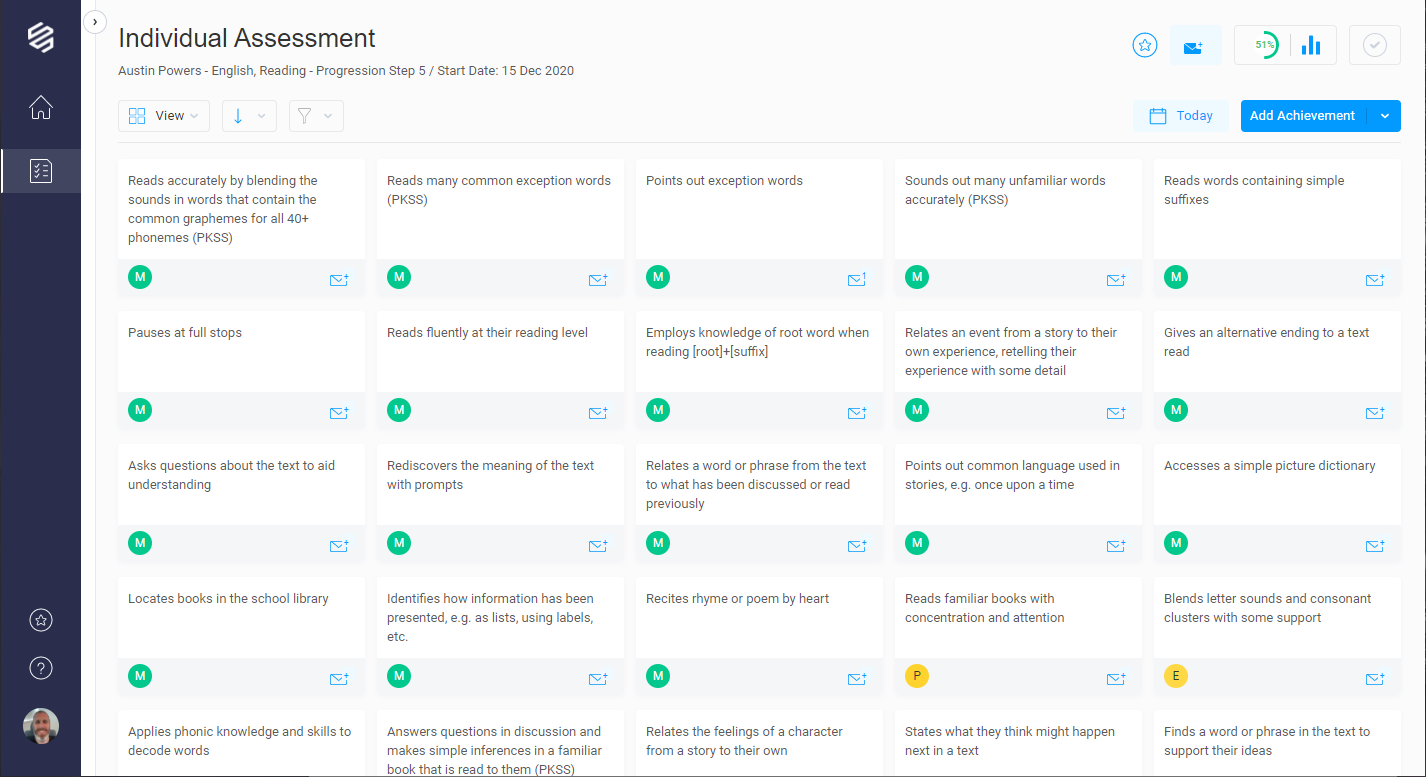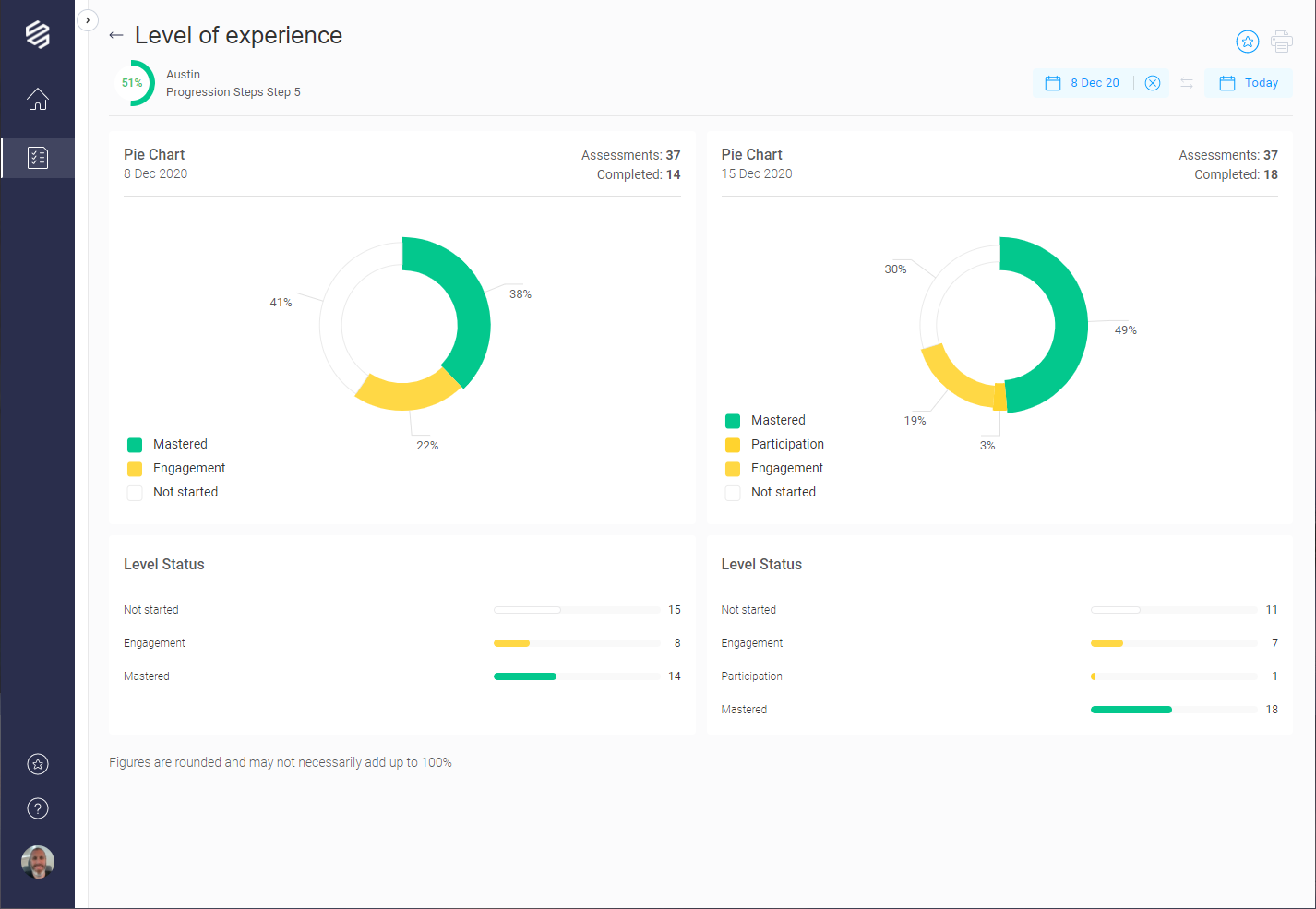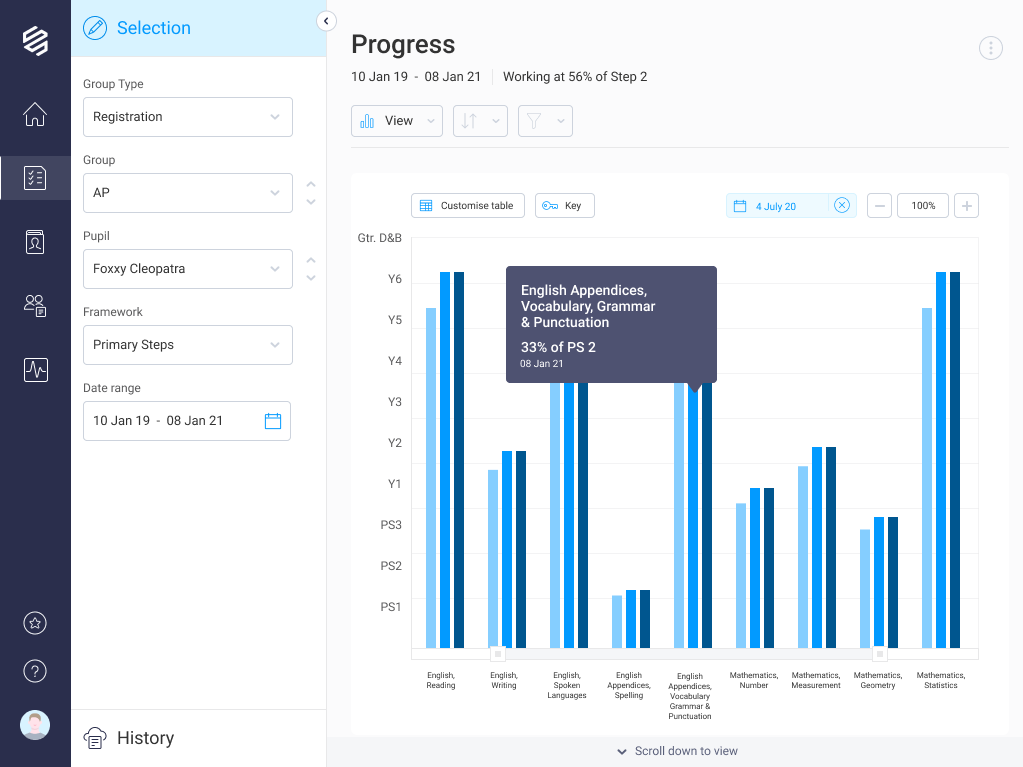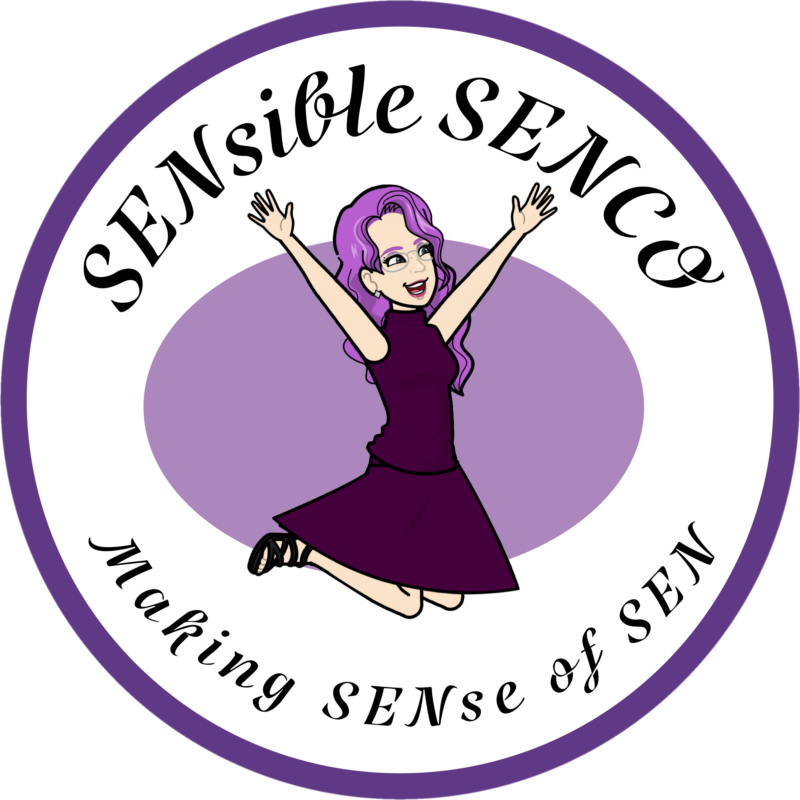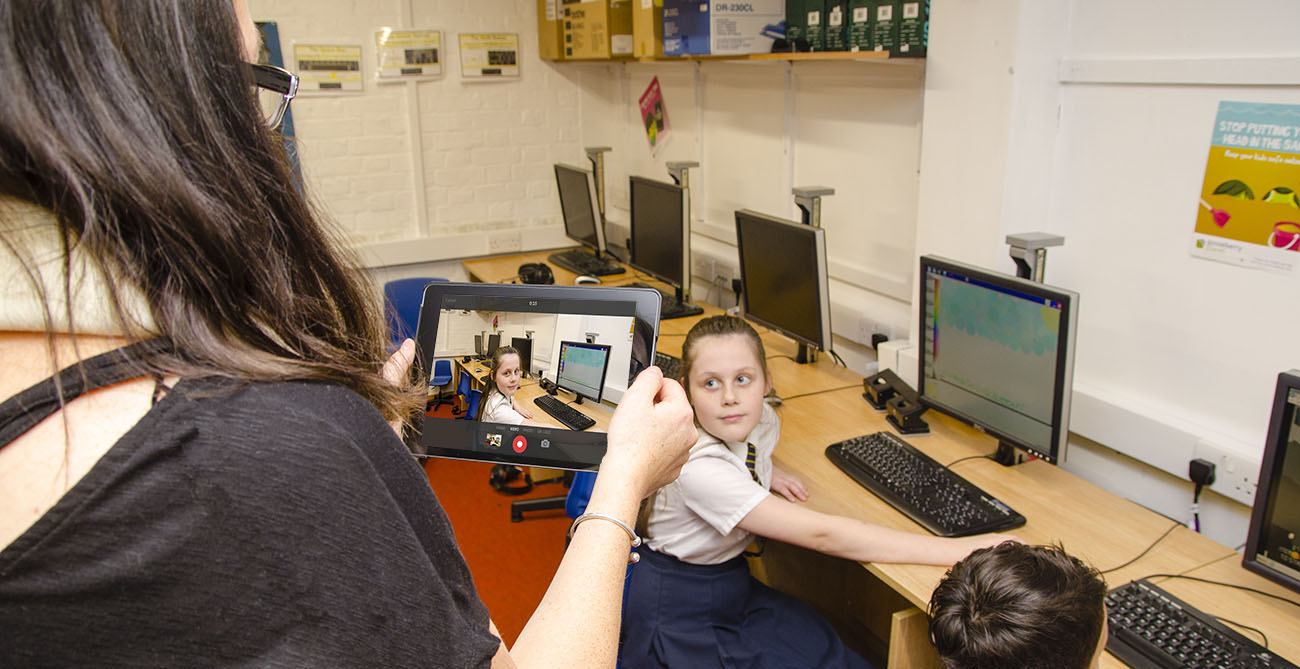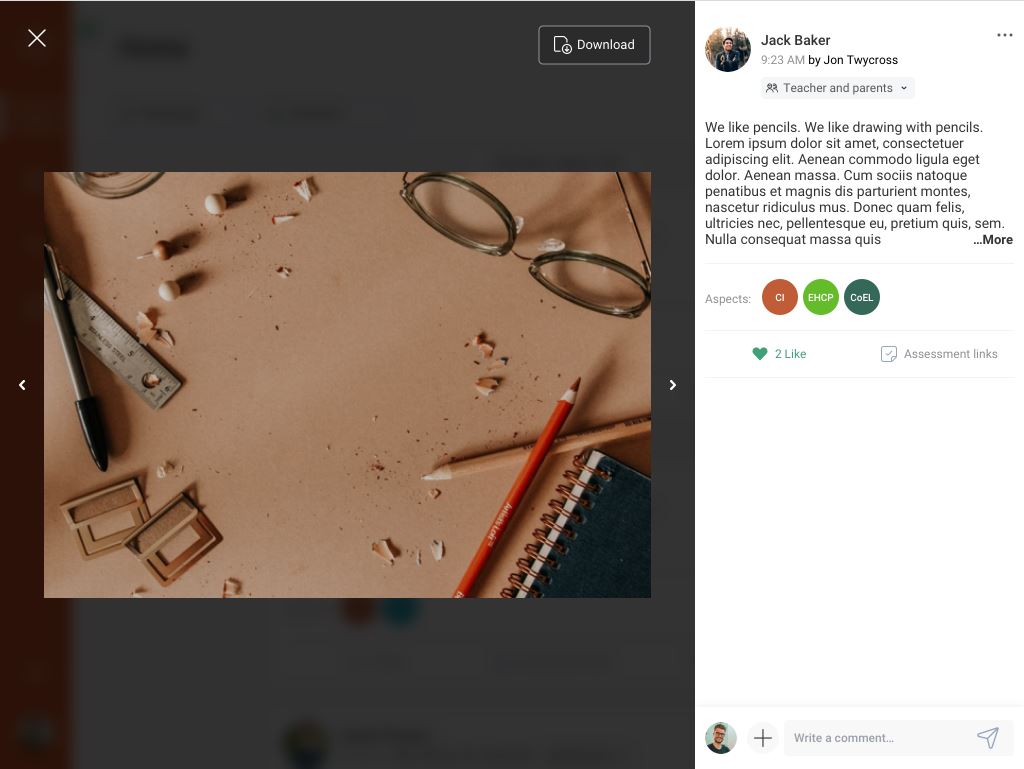Assessment and Evidence of Learning for Pupils with Special Educational Needs (SEN)
Over a third of special schools within the UK already use our assessment software, Connecting Steps. Our new evidence platform, Evisense is gaining popularity as schools see how easy and powerful it is.
The first version of Connecting Steps was designed by an SEN teacher around 25 years ago. They identified that existing assessment systems weren’t able to detect the small steps of progress her pupils made. From the very beginning, Connecting Steps has been developed to identify and record even the smallest of achievements. We provide assessment content within the software to cover all types of need – PMLD, SLD, MLD, ASD and SEMH. Our content covers a wide ability range and can be used from birth to 25, making our software ideal for a wide range of SEN settings.
Over the last 25 years, we have constantly updated our assessment frameworks, our assessment software and released new products. Connecting Steps V5, our latest version is designed to be faster, simpler and easier. At the same time, it offers even more ways to show progress, so that it can capture all the progress pupils with SEND make.
Connecting Steps
Connecting Steps is the most popular and effective assessment software for pupils with SEND. A wide range of frameworks that are built into Connecting Steps helps schools get up and running as quickly as possible.
Connecting Steps is the standard asssessment system for pupils with SEND across a number of authorities in the UK. The simple interface, powerful features and flexible approach to progress means it works for a wide range of pupils. Connecting Steps V5 brings even more features and now works on iPads and other tablet devices.
Watch this Connecting Steps Review by SENsible SENCO
Abigail Hawkins created SENsible SENCO to help out all SENCOs across the UK
The SENsible SENCO is a selection of resources developed around SEN and the needs for SENCOs within schools. The resources have all been shared by SENCOs. Whenever you need support the SENsible SENCO resource bank is there! And it’s FREE!!!
Great Feedback
Fantastic assessment tool for pupils working at Pre-Key Stage Standards
“Connecting Steps has proven itself to be a fantastic assessment tool for our pupils who are working at Pre-Key Stage Standards. It enables staff to easily see the areas of learning that need to be focused upon and allows us to measure and record the small steps of progress that are made. This is vital for schools.” Rebecca Fogden, Assistant Head for Inclusion – Poplars Farm Primary School
Easy to use and to set small step targets to work towards
“B Squared’s Connecting Steps is a great assessment tool that has enabled us to show the small steps of learning that children are making and share this with parents. The software is easy to use and has enabled staff to set small step targets for children to work towards.”
Pauline Clayton, SENCO – St Edmund’s and St Thomas’ Catholic Primary School
Want to find out how connecting steps simplifies assessment?
Click on the button to arrange a FREE online meeting to find out how we can help make assessment easier for your school
Show Progress for
ALL Pupils
Within Connecting Steps we have a wide range of assessment frameworks that support a wide ability range and age range.
Since the removal of Levels (2014) and P Levels (2018) schools have the flexibility to choose how to assess pupil progress. For pupils working at Age Related Expectations (ARE), this is relatively simple.
Schools have found it a challenge to show progress for pupils working below ARE or out of their year group. Some schools assess pupils as simply ‘working below’. This is not good enough. It is important schools are able to identify where a pupil is working, the progress the pupil has made and what those next steps will be.
Our assessment frameworks can show the small steps of progress pupils make from birth to 25
New Assessment Frameworks
We have created a number of new assessment frameworks for Early Years, primary, secondary and post-16. Our framework support pupils engaged in subject specific learning and those not yet engaged in subject specific learning.
Engagement Steps
Our Engagement Steps has been designed to support ‘The Engagement Model’. It has been created for pupils working below the pre-key stage standards, who aren’t engaged in subject specific learning.
Primary Steps
Primary Steps has been designed to support pupils in primary schools that are either working below Year 1 or out of their year group. It supports teachers to show progress and identify next steps.
Progression Steps
Progression Steps has been designed for schools who don’t want to use end of year outcomes when discussing attainment. Schools who typilcally use Progression Steps are Specialist settings or pupils with SEND in mainstream secondary schools.
Evisense
Evisense is a powerful evidence for learning system. The social media style interface for staff and parents is simple to use, but extremely powerful. Our apps for iPhone, iPad, android (tablet and phone) and Kindle Fire means whatever device you are using, you can use the Evisense app.
A number of features make Evisense the most secure evidence for learning system. A number of controls ensure data is safe and evidence can only be accessed by the right people. If you use Evisense and Connecting Steps together, you can link evidence to the skills in Connecting Steps. You can then view the evidence from within Connecting Steps.
Want to find out EVISENSE CAN HELP SHOW PROGRESS?
Click on the button to arrange a FREE online meeting to find out how Evisense can help show progress for puils with SEND
Holistic Assessment
We have 15 assessment packages available across 7 different frameworks. Schools can choose packages based on their needs. We have a range of packages and frameworks for Cognition and Learning covering a wide range of ability, for different age ranges. We also have frameworks to suit the other areas of need – Communication & Interaction, Social, Emotional and Mental Health (SEMH) and Sensory and Physical. Our Autism Progress is a tool to help schools profile how a pupil’s autism impacts them and their learning. The image below gives you an overview of our different frameworks.
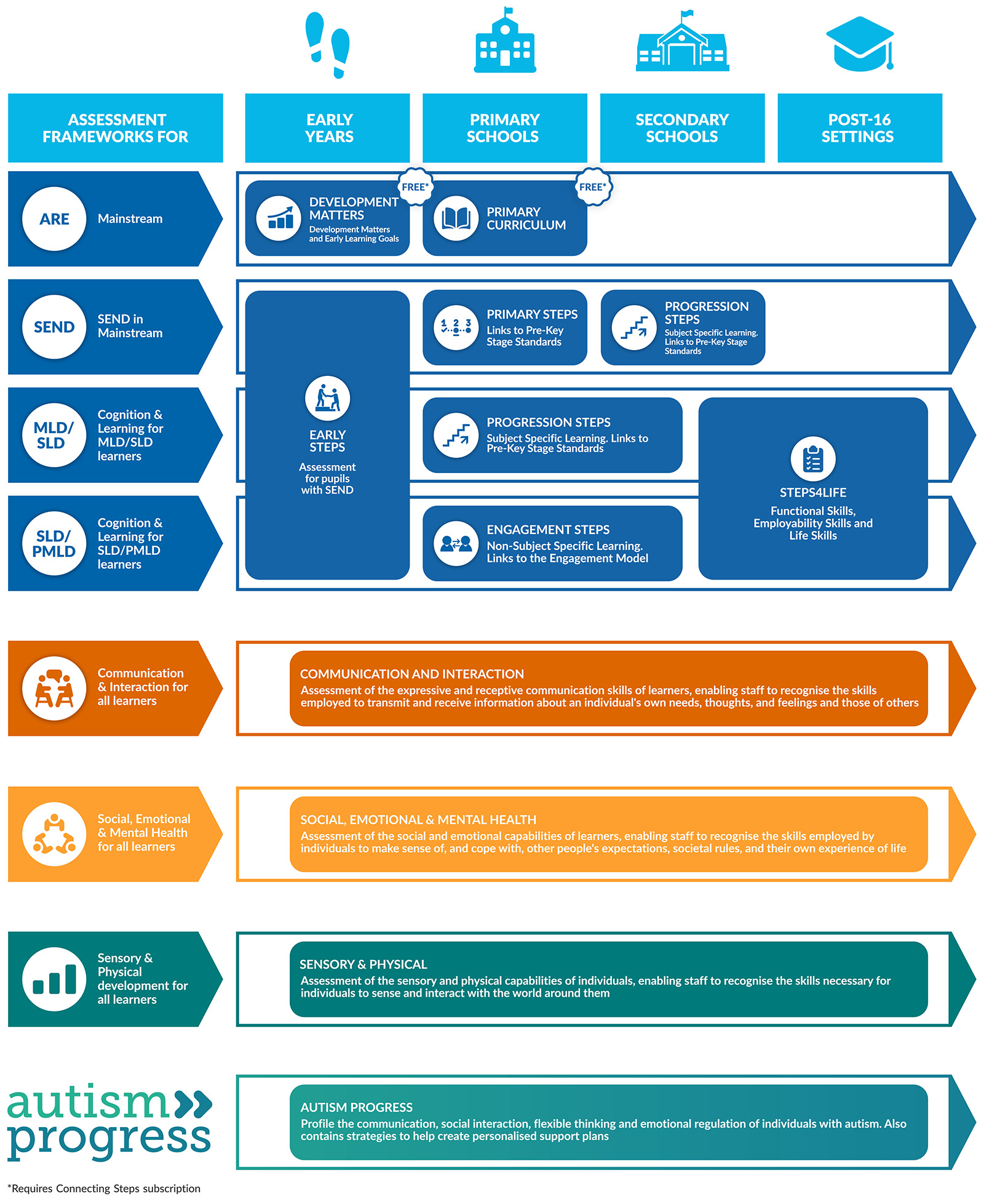
Comparing Frameworks
Each framework has its own levelling system, often based on government guidance. The button on the left shows you the ability range of each framework and how they compare. This new extended comparison chart includes our new FREE assessment content. Any skill that appears in multiple frameworks are linked, this simplifies transitioning between frameworks.
Early Steps
Early Steps is for pupils working within the Early Years Foundation Stage (EYFS). Our updated Early Steps reflects the changes introduced by the new EYFS 2021 Framework and the new 2020 Development Matters. Early Steps covers a developmental range equivalent to Birth to ELG.
Our NEW updated Early Years Foundation Stage (EYFS) assessment covers the range from birth to the Early Learning Goals (ELG) and beyond. We have used the new EYFS 2021 Framework and the new 2020 Development Matters when developing this framework.
The leveling structure of the new Development Matters document is different to previous frameworks and wasn’t designed with SEND in mind. The lowest level in the new Development Matters is birth to 3 Years. We have taken the decision to split Birth to 3 Years into 8 levels, so that settings with pupils with SEND can show progress for these children and help profile their needs.
Engagement Steps
Engagement Steps is for pupils not yet engaged in subject specific learning. It supports ‘The Engagement Model’ released in 2020. Engagement Steps covers a developmental range equivalent to P1(i) to P6.
Engagement Steps is our assessment framework for pupils not yet engaged in subject-specific learning. It supports schools to use the Engagement Model. If you are unsure what the Engagement Model is, if it applies to your pupils or how you are supposed to embed the Engagement Model, please read our blog ‘Who Isn’t Confused by the Engagement Model?’.
Engagement Steps helps support schools to profile a pupil’s needs and show progress in the following areas:
- Communication
- Functional Movement
- Making Connections (Cognitive)
- Self and Emotions
- Sensory
Primary Steps
Primary Steps is for pupils in primary schools, working below Age Related Expectations (ARE). Schools typically use Primary Steps with any pupil working 2 years or more below ARE. The Primary Steps incorporates the Pre-Key Stage Standards. Primary Steps covers a developmental range equivalent to P4 to Year 6
Primary Steps is designed for pupils in primary settings working outside of their year group or below Year 1. Our Primary assessment breakdown containts end of year outcomes taken directly from the 2014 National Curriculum. We have broken these down into smaller steps so that teachers can show progress and identify next steps.Primary Steps includes the first 3 Progression Steps levels for pupils working below Year 1. These Progression Steps link to the pre-key stage standards, simplifying the assessment process.
Primary Steps assessment content is available in 3 packs and covers the following areas:
Core Pack
English
Maths
Science
Plus Pack
Computing
PSHE (Includes Relationship Education)
PE
Foundation Pack
Art & Design
Design & Technology
Geography
History
Languages
Music
Religious Education
Progression Steps
The Progression Steps covers a wide ability range and is designed for both primary age and secondary age pupils. It is ideal for pupils in specialist settings or for pupils with SEND in secondary mainstream settings. The Progression Steps incorporates the Pre-Key Stage Standards. Progression Steps covers a developmental range equivalent to P4 to NC Level 7
Progression Steps is designed for pupils who are engaging with subject-specific learning. This framework covers an ability range from pupils working at pre-key stage standards up to pupils working towards the lower GCSE grades. The Progression Steps level structure was created by B Squared, but fits in with expectations set by the DfE.
The Preparing for Adulthood (PFA) is our latest pack. It is designed to be used up to Year 9 to help pupils prepare for life beyond education.
The Progression Steps assessment content is available in 3 packs and covers the following subjects:
Core Pack
English
Maths
Science
Plus Pack
Citizenship
Computing
PSHE (Includes Relationship and Sex Education)
PE
Foundation Pack
Art & Design
Design & Technology
Geography
History
Languages
Music
Religious Education
Performing Arts
Singing
Dancing
Acting
Stagecraft
Want an easy way to show pupil progress?
Click on the button to arrange a FREE online meeting to find out how we can help make assessment easier for your school
Steps 4 Life
The Steps 4 Life covers a huge ability range and covers a wide range of skills. It is designed to support pupils to Prepare for Adulthood (PFA), supporting them with academic, life and employability skills. Steps 4 Life covers a developmental range equivalent to P1(i) to NC Level 6
Steps4Life is our framework for pupils with SEND who are working towards independent living. It is primarily designed to be used from Key Stage 4 onwards. Some individuals will be working towards independent living and employment while others will be working towards semi-independent living and others will be in supported living.
The Steps4Life covers a wide range of areas and a wide ability range, it includes 7 levels that are the equivalent of P1 to P8 which replace the old Milestones. It then covers Entry Levels 1, 2 and 3 and RQF Level 1 and 2.
The Steps 4 Life assessment content is available in 3 packs and covers the following areas:
Academic Skills Pack
English
Maths
PSD (Including Relationship & Sex Education)
Digital Skills
Life Skills Pack
Food
Independence
Self Care
Travel
Employability Skills Pack
Identifying a Job
Getting a Job
Your Rights
Workplace Routines
Workplace Skills
Autism Progress
Autism Progress is based on SCERTS. It is designed to be used alongside your academic assessment to help profile a pupil’s autism. Autism Progress covers a neurotypical developmental range equivalent to P1(i) to NC Level 6
Autism Progress was developed with Scottish Autism, Autism Wessex and North East Autism Society. Autism Progress is a tool schools can use to help profile a pupils autism and how it impacts them and their learning. Autism Progress has a range of skills spread over a set of progressive levels in the following areas of autism:
- Communication
- Flexibility of Thought
- Social Interaction
- Emotional Regulation
Each area goes from level 1 (around birth) to level 17 (early adulthood). A significant benefit of Autism Progress are the strategies developed to support development. We have worked with experts to create a list of strategies for each area and each level to help support your students.
For more information on using Autism Progress to profile a pupil’s autism, click here
Communication and Interaction
Communication and Interaction is designed to be used by teaching staff and the Speech and Language team. It is designed to be used alongside your academic assessment to help support pupils’ Communication and Interaction needs. The framework covers a typical developmental range of Birth to 13 to 15 year old.
Our new Communication and Interaction framework aims to help members of staff to assess and monitor the developing abilities of the children and young people they work with so that staff are able to help those that need it. It does this by breaking communication down into the following areas:
- Spontaneous Verbal Communication
- Recorded Verbal Communication
- Non-Verbal Communication
- Using Technology to Aid Communication
Each area goes from level 1 (birth – 3 months) to level 16 (13 – 15years). The levels are based on typical development and students are likely to be working across a number of different levels, based on their needs.


